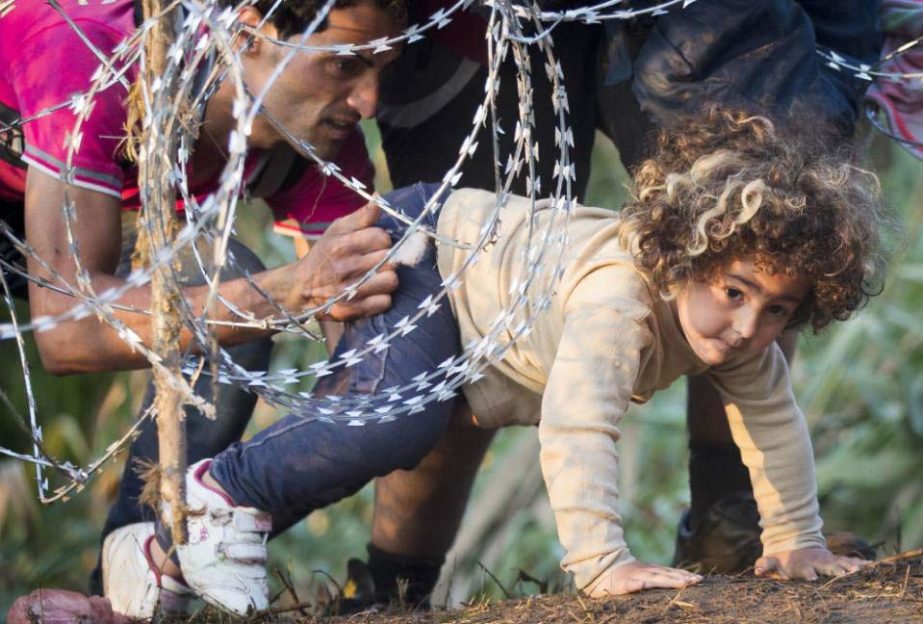
AP, Hungary :Hungary deployed police reinforcements to rein in an unrelenting flow of migrants across its porous border Thursday, but refugee activists said the effort appeared futile in a nation whose migrant camps are overloaded and barely delay their journeys west into the heart of the European Union.Police reported a single-day record of 3,241 detentions of migrants on Wednesday, 700 more than the previous day, as they launched a new initiative seeking to channel migrants to one of the country’s five camps using special trains. Under police escort, about 600 asylum seekers boarded one train to be delivered directly to at least two migrant camps.But at several points along Hungary’s meandering 109-mile (174-kilometer) border with non-EU member Serbia, undaunted migrants crossed the frontier on foot. Some said it was safer to walk rather than risk death by being smuggled in a vehicle. That risk was highlighted by Thursday’s discovery in neighboring Austria of the badly decomposing bodies at least 20 – and perhaps up to 50 – migrants dead inside an abandoned Hungarian-plated refrigerated truck.Many crawled, boot camp-style, under coils of razor wire designed to be Hungary’s first line of defense. Some clutched toddlers to their chests. Elsewhere, others encountering Hungary’s partially erected 13-foot-tall (4-meter-tall) border fence deployed both brain and brawn to traverse the wire-mesh barrier.Others flowing from Serbia’s main border encampment near Kanjiza maintained an orderly line on a cross-border rail track that cannot be blocked by fencing. A lone Hungarian police helicopter monitored the steady flow of migrants walking along those tracks and, once into Hungary, fanning out through lush fields of sunflowers and corn.Amman report adds: After escaping a devastating war, frustrated Syrian refugees in aid-starved neighbouring states say they must now choose between joining an exodus to Europe or “returning home to die”.Millions of Syrians have found shelter in surrounding countries including Lebanon, Turkey and Jordan that are now struggling to cope with the massive influx.A lack of jobs and humanitarian assistance means that many are now giving up on their host nations.”What do they expect us to do, to die in silence?” said Mohammed al-Hariri, who lives in Jordan’s vast Zaatari desert refugee camp.”Syrians now have two choices: either to return and die in their country or to emigrate,” he said.Around 340,000 migrants reached the EU’s borders in the seven months to July, in the continent’s biggest migration crisis since World War II, with hundreds perishing at sea.

